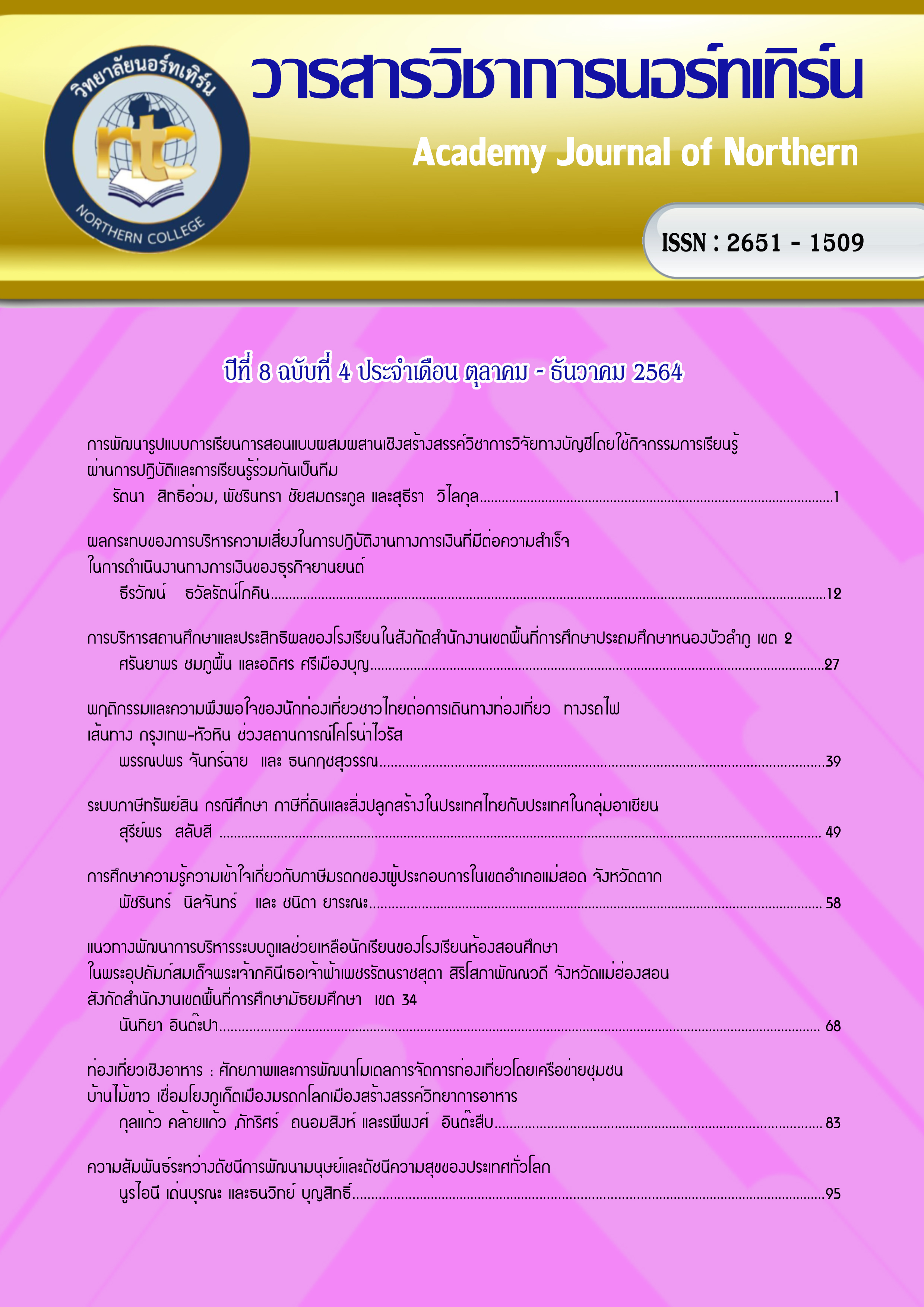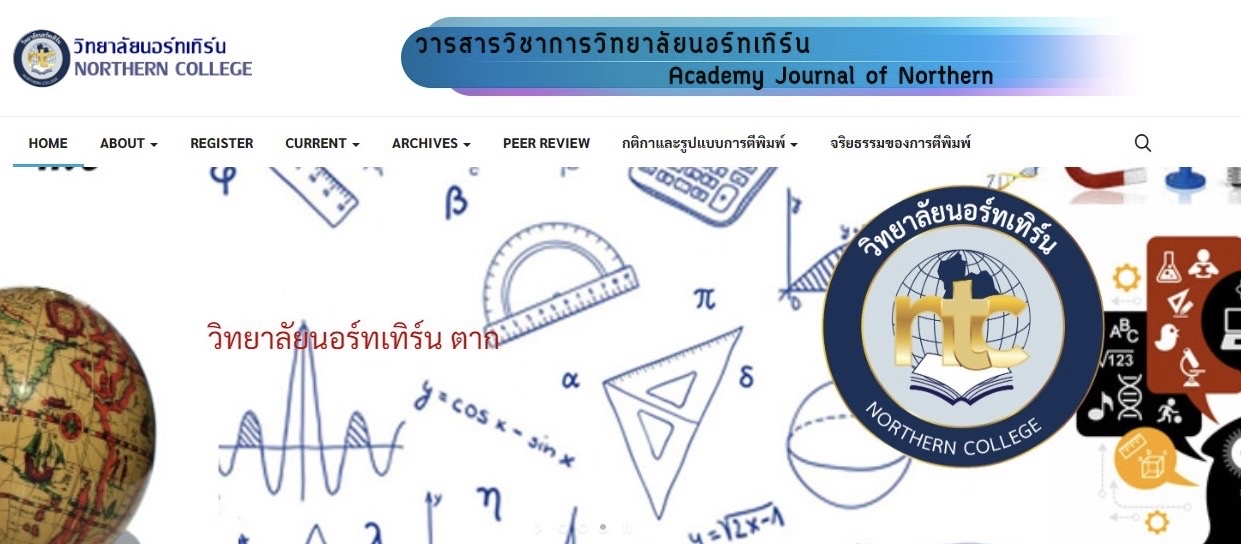The relationship between Human Development Index and World Happiness Index of countries around the world
Keywords:
human development index, World happiness indexAbstract
This article studies the relationship between the human development index, and the index of happiness of countries around the world. The objective is to study the relationship between the human development index, and the index of happiness and study the factors that affect human development index of countries around the world. By this time, studies using regression analysis (Multiple regression analysis), complex information used in the study is cross sector data (Cross-sectional data) from the database, the human development index year 2016 and world happiness index, database year 2016, using a sample of 157 countries. countries study found that the countries with the highest human development index, the 10 countries including Norway Australia Switzerland Germany Denmark Singapore Netherlands Ireland Iceland Canada and countries with the lowest human development index, 10 countries, including Eritrea Sierra Leone Mozambique South Sudan Guinea Burundi Burkina Faso Chad Niger Burkina Central African Republic and the country that has the world highest happiness index, 10 countries including Denmark Switzerland Iceland Norway Finland Canada Netherlands New Zealand Australia Sweden and the country has the lowest global happiness index, 10 countries, including Madagascar, Tanzania, Liberia, Guinea Rwanda Benin Afghanistan Togo Syria Burundi. In addition, the study of the relationship between the human development index, and the index of happiness of countries around the world. Found that the human development index, and the index of happiness of countries around the world. Relations have suffered in the 57 percent intermediate and study on factors that influence the human development index. The average life expectancy is found to. Value of gross domestic product the country. Years of study, the average cost of research and development, population-level corruption as factors that affect human development index statistically significant at 0.05 level.
References
เฉลิมพล แจ่มจันทร์. (2556). ดัชนีการพัฒนามนุษย์ปี 2556 กับความรุ่งโรจน์ของโลกทางใต้. สืบค้นเมื่อวันที่ 4 กุมภาพันธ์ 2560. จากรายงานการสถาบันวิจัยประชากรและสังคม มหาวิทยาลัยมหิดล.
จิต อร่าม, และปริญญา. (2013). การพัฒนามนุษย์ในมุมมองของนักสาธารณสุข. วารสารคณะพลศึกษา. สืบค้นเมื่อ 11กุมภาพันธ์ 2560.
วริสราสุ กุมลจันทร์. (2553). การพัฒนามนุษย์ในมุมมองของอมาตยาเซน Human development from Amartya Sens perspective. สืบค้นเมื่อ 11กุมภาพันธ์ 2560.
สมบัติ กุสุมาวลี. (2539). แนวคิดการพัฒนามนุษย์. วารสารพัฒนบริหารศาสตร์. ปีที่ 36 (ฉบับที่ 3), หน้า 171-189. สืบค้นเมื่อ 11 กุมภาพันธ์ 2560.
เสรี ลีลาลัย. (2553). ความสุขทางเศรษฐกิจ และความสุขมวลรวมประชาชาติ. วารสารรามคำแหง ปีที่ 27 (ฉบับที่ 1), หน้า 151-163. มหาวิทยาลัยรามคำแหง. สืบค้นเมื่อ 11 กุมภาพันธ์ 2560.
ศุภเจตน์ จันทร์สาส์น. (2554). คุณภาพชีวิตของคนไทย: นัยจากดัชนีการพัฒนามนุษย์. วารสารนักบริหาร 31 (4), 46-54. มหาวิทยาลัยกรุงเทพ. สืบค้นเมื่อ 12 กุมภาพันธ์ 2560.
จรรยา ดาสา. (2552). ความสุขในการทำงาน (happy workplace). ออนไลน์. สืบค้นเมื่อ 12 กุมภาพันธ์ 2560 จาก http://www.il.mahidol.ac.th/th/images/stories/exchange/7-05-52_Column_6.pdf.
ชัยเสฎฐ์ พรหมศรีสา. (2553). ความสุขในการทำงาน. ออนไลน์.สืบค้นเมื่อ 12 กุมภาพันธ์ 2560 จาก http://www.bu.ac.th/knowledgecenter/executive_journal/jan_mar_10/pdf/89-91.pdf.
สาวสุธิดา แสงทองสุข. (2553). ความสัมพันธ์ระหว่างดัชนีการพัฒนามนุษย์กับเป้าหมายทางเศรษฐกิจ. มหาวิทยาลัยหอการค้าไทย. สืบค้นเมื่อ 12 กุมภาพันธ์ 2560.
อาวุธ ไขแสง. (2550). การสำรวจและจัดทำดัชนีความสุขของประชาชน : กรณีศึกษาองค์การบริหารส่วนตำบลไสไทย อำเภอเมือง จังหวัดกระบี่. ปริญญานินธ์ รป.ม. (การปกครองท้องถิ่น). ขอนแก่น: บัณฑิตวิทยาลัย มหาวิทยาลัยขอนแก่น. สืบค้นเมื่อ 12 กุมภาพันธ์ 2560.
สุภาณี สุขะนาคินทร์. (2551). ปัจจัยที่มีความสัมพันธ์กับความสุขของประชาชน อำเภอท่าปลา จังหวัดอุตรดิตถ์. วิทยานิพนธ์ ศศ.ม. (การวิจัยและพัฒนท้องถิ่น). อุตรดิตถ์: บัณฑิตวิทยาลัย มหาวิทยาลัยอุตรดิตถ์. สืบค้นเมื่อ 12 กุมภาพันธ์ 2560.
ณรงค์ เพ็ชรประเสริฐ และกนกพร นิตย์นิธิพฤทธ์. (2553). ความสุขมณฑลความรู้ใหม่ในทฤษฎีเศรษฐศาสตร์. กรุงเทพฯ: บริษัท เอดิสันเพลส โปรดักส์ จำกัดสืบค้นเมื่อ 12 กุมภาพันธ์ 2560
Vertakova, Y., Polozhentseva, Y., Plotnikov, V., & Isayev, M. (2015). Directions of human potential development in Russia. Procedia Economics and Finance, 23, 495-500. สืบค้นเมื่อ 12 กุมภาพันธ์ 2560.
Rodriguez-Munoz, A., & Sanz-Vergel, A. I. (2013). Happiness and well-being at work: A special issue introduction. Revista de Psicología del Trabajoy de las Organizaciones, 29(3), 95-97. สืบค้นเมื่อ 12 กุมภาพันธ์ 2560.
Zidanšek, A. (2007). Sustainable development and happiness in nations. Energy, 32(6), 891-897. สืบค้นเมื่อ 12 กุมภาพันธ์ 2560 จาก http://www.sciencedirect.com/science/article/pii/ S0360544206002623.
Veenhoven, R. (1991). Is happiness relative, Social Indicators Research. 24: 1-34. สืบค้นเมื่อ 28 กุมภาพันธ์ 2560.
Veenhoven, R. (1997). Advances in understanding happiness, Revue Quebecoise de Psychologie. 18:29-74. English versionavailable on line จาก http://www.eur.nl/fsw/personeel/happiness/. สืบค้นเมื่อ 28 กุมภาพันธ์ 2560.
Sachs, J., Becchetti, L., & Annett, A. (2016). World Happiness Report 2016, Special Rome Edition (Vol. II; intro., chapters I and III). New York: Sustainable Development Solutions Network. สืบค้นเมื่อ 1 มีนาคม 2560.
วรรณพงษ์ ดุรงคเวโรจน์. (2557). การศึกษาการลดความยากจนและการพัฒนาเศรษฐกิจในกลุ่มประเทศต่างๆทั่วโลก. วิทยานิพนธ์เศรษฐศาสตร์มหาบัณฑิต คณะเศรษฐศาสตร์ มหาวิทยาลัยเชียงใหม่. สืบค้นเมื่อ 10 มีนาคม 2560.
Downloads
Published
How to Cite
Issue
Section
License
Copyright (c) 2023 Academy Journal of Northern

This work is licensed under a Creative Commons Attribution-NonCommercial-NoDerivatives 4.0 International License.







